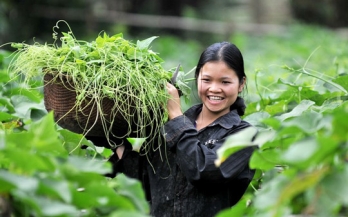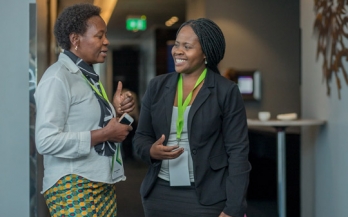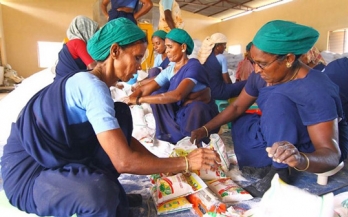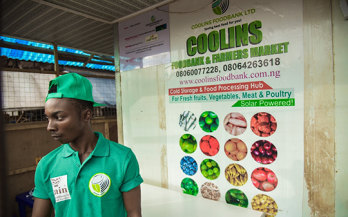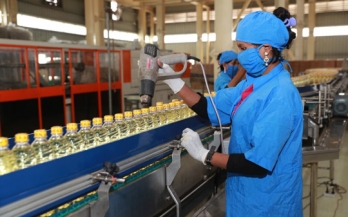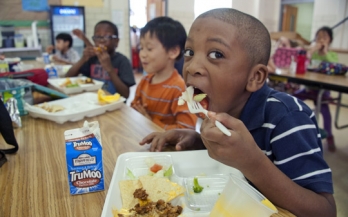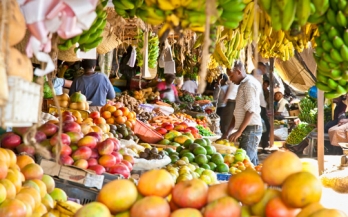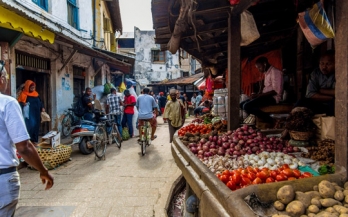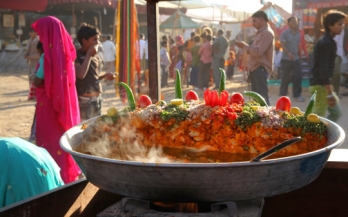Supporting small enterprises in the food system is central to improving access to safe and nutritious foods in low- and middle-income countries (LMICs) - and therefore to improving nutrition. However, the ways in which such enterprises are supported can have important implications for achieving other social goals, such as gender equity and women’s empowerment.
Starting a business is challenging - particularly in the agriculture and food sector in a low- or middle-income country, and particularly for women, who face numerous barriers to starting and running a firm. Business networks can play an important role in helping women (and men) navigate these challenges by providing them with access to information, contacts, and resources.
Small- and medium-sized businesses play essential roles throughout the food systems of low- and middle-income countries, and supporting them to expand and improve their production can help strengthen domestic employment and economic growth and facilitate improved access to safe, nutritious, and affordable food.
Eggs are a widely available and affordable source of protein, vitamins, and minerals that support growth and development, yet they are not frequently fed to children in Kaduna. The ‘Eggs Make Kids’ campaign was launched by GAIN on World Egg Day in October 2019. Using commercial marketing techniques and insights into consumer behaviour, it aims to create demand for eggs as a nutritious food for children aged six months to five years.
Based on an external assessment, this working paper summarises PLAN’s work in Nigeria (N-PLAN) and Indonesia (I-PLAN), impacts to date, and key learnings. The assessment indicated that PLAN has helped create influential networks, allowing diverse stakeholders to work together to address common issues related to post-harvest loss.
This study responds to earlier findings of suboptimal compliance with mandatory fortification of edible oil in Bangladesh. We aim to explain the root causes of poor compliance and to provide recommendations to strengthen the national fortification programme in Bangladesh and other similar contexts.
Public food procurement refers to how governments purchase and provide food to defined populations. Institutional food procurement refers to food purchasing and provision by organisations like schools, hospitals, care homes, youth clubs, prisons, and workplaces. Local governments often manage public food procurement at these institutions, serving food to students, patients, employees, and their families.
Dietary intake data are required to design, monitor, and evaluate nutrition programmes and policies; however, current dietary assessment methods are complex, time consuming, and costly. Recently, GAIN developed a semi-quantitative food frequency questionnaire (SQ-FFQ) that can be used in coverage surveys to estimate the amount of fortified and biofortified foods consumed and their contributions to nutrient intakes.
In 2016, Tanzania put in place a nutrition action plan that would seek to go beyond previous action plans and strategies. The Prime Minister’s Office took the lead in developing a nutrition action plan that not only had ambitious goals and targets but also explicitly called on other sectors to join the country’s fight against malnutrition.
Street foods - ready-to-eat foods or beverages that are sold by vendors in the street or other public places - play an important role in contributing to daily nutrition and ensuring food security worldwide. India has a rich tradition of street food vending, much of it taking place in urban areas and accessed by people from all socio-economic backgrounds.
